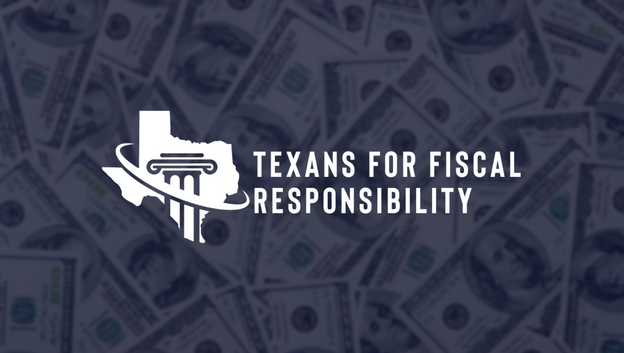
Property taxes have been levied by governments in Texas since before its independence from Mexico. How the tax has been levied however has changed over time.
In the last few decades, the burden of property taxes has exponentially increased as a portion of the overall taxes paid by Texans. The Tax Foundation reported in 2021 that Texas had the 6th most burdensome property tax in the United States. Wallethub reported just a year earlier that Texas ranked 7th in the nation. This happened despite Republicans maintaining every statewide elected office and control of the legislature for the better part of two decades and promises to address the issue.
Their own party platform calls for the abolishment of such a tax:
178. Abolish Property Tax: We support replacing the property tax system with an alternative other than the income tax and requiring voter approval to increase the overall tax burden. We urge the Legislature to develop a transition plan that is a net tax cut (one of the solutions could be a consumption tax).
The collection of property taxes in Texas is based primarily on both the subjective valuations of appraisal review boards and tax rates established by local taxing entities with almost no feedback from those that are being taxed. It is a system of perpetual rent to the government, ultimately meaning that property owners never truly own their property. It is immoral.
Efforts have been made in the last few legislative sessions to address the growing burden. Those that have been successfully passed by the legislature have merely slowed the growth of such burdens for certain classes of Texans, something that lawmakers have dubbed “relief.”
Concerns are almost immediately raised by taxpayers and lawmakers alike when the elimination of property taxes is brought up in normal discourse relating to the continuation of government services primarily funded by the collection of such taxes. Alternatives to the collection of such a tax exist, here are a few:
Consumption Tax
- Definition: a tax applied to the sale or purchase of a good or service; generally applied at the time of purchase.
An organization known as Eliminate the Property Tax supports restructuring the Texas tax system by replacing over 60 separately levied taxes with what they deem as a lone transparent consumption tax.
There are different types of consumption taxes. Some include:
Value-Added Tax (VAT)
- Definition: a tax applied to each step in the supply chain of a good or service; the difference between the value of an item at the time it starts production and the value of the item at the time it is sold.
In the 87th regular legislative session in 2021, State Rep. James White (R-Hillister) authored legislation that would repeal local sales taxes and collection of property taxes and replace them with a system of value-added taxes. The legislation was never granted a public hearing in the House Ways & Means Committee.
In the 83rd regular legislative session in 2013, former State Rep. George Lavender (R-Texarkana) authored legislation that sought to repeal the state sales and use tax, motor vehicle sales tax, rental taxes, cigar and tobacco product tax, hotel occupancy tax, manufactured housing sales tax and several other levied taxes and instead impose a state value-added tax at 7 percent with an allowance of local taxing jurisdictions to impose their own local option value-added tax of up to 3 percent. The legislation, known as the Texas Tax Reform Act of 2013, was heard in the House Ways & Means Committee but ultimately never voted on.
Sales Tax
- Definition: a tax on sales or on the receipts from sales.
According to the Texas Comptroller, Texas currently “imposes a 6.25 percent state sales and use tax on all retail sales, leases, and rentals of most goods, as well as taxable services. Local taxing jurisdictions (cities, counties, special purpose districts, and transit authorities) can also impose up to a 2 percent sales and use tax for a maximum combined rate of 8.25 percent.”
The current state Limited Sales, Excise, and Use Tax Act was passed into law in 1981. At its inception, however, in 1961 the sales tax percentage was that of 2 percent. It grew to 3 percent in 1968, 3.25 percent in 1969, 4 percent in 1971, 6 percent in 1987, and arrived at its current rate in 1990. Since then, the list of cities that charge an additional sales and use tax has grown as well for a range of purposes which include providing property tax relief and municipal development.
The Texas Public Policy Foundation is promoting a plan that would purportedly eliminate property taxes by the year 2033 by lowering government spending, eliminating the largest portion of the property tax calculation; school maintenance and operations (M&O) taxes, and redesigning the state’s tax code so that local governments are instead primarily funded by sales taxes.
In the second-called special session of the 87th legislature, State Rep. Cecil Bell (R-Magnolia) authored legislation that sought to use 90 percent of surplus general revenue funds to eliminate all M&O taxes. Though it boasted 75 authors (half of the lawmakers in the House of Representatives), it was never granted a hearing in the House Appropriations Committee.
In the third-called special session of the 87th legislature, State Rep. Tom Oliverson (R-Cypress) authored legislation he had also filed in previous sessions that sought to use surplus state revenue to ‘buy down’ the M&O taxes. Though it passed the House Appropriations Committee it was never considered by the House Calendars Committee and set on a calendar for the entire House of Representatives to consider.
Income Tax
- Definition: a tax levied by a government directly on income, especially an annual tax on personal income.
The state of Texas has never collected a state income tax.
In 2019, the Texas Legislature passed a proposed constitutional amendment seeking to prohibit the imposition of an individual income tax by codifying that prohibition in the Texas Constitution. Later that year, Texas voters approved Proposition 4 by nearly 75% and now the Texas Constitution includes a provision prohibiting the imposition of such a tax.
The current constitutional amendment and protection would have to be repealed, requiring an additional constitutional amendment and for a two-thirds majority in each legislative chamber, and majority support of Texas voters to support it, in order for an income tax itself to be instituted. This would be an extremely unlikely avenue for property tax replacement in this state.
Brass Tacks
For decades, lawmakers and statewide elected officials have promised remedies to the ever-growing property tax burden on Texas property owners. In this cycle, several candidates for elected office have varying plans for how to ultimately eliminate the collection of a property tax. Texans for Fiscal Responsibility believes that the property tax is immoral and supports its ultimate elimination.
Viable plans exist to move Texas off of the immoral practice of collecting property taxes to fund government services. The question that remains however is whether the political will exists to actually follow through and move beyond paying lip service to the issue?




